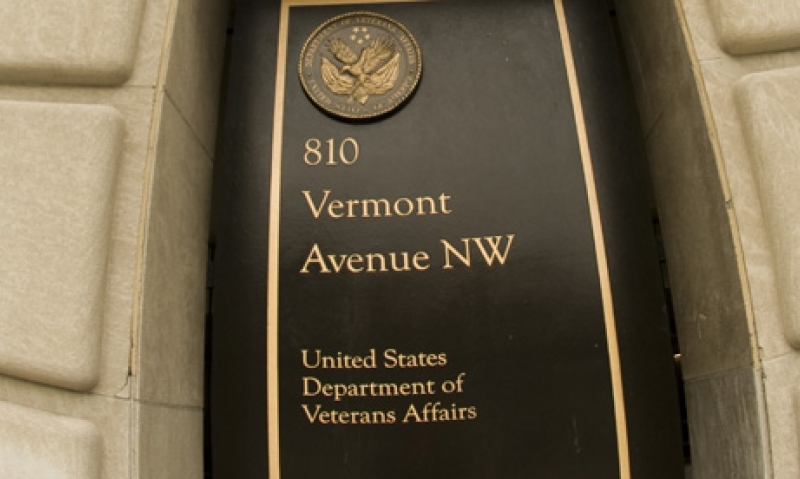
House bill calls for VA accountability
Responding to The American Legion's repeated call for more accountability among VA employees who process veterans' disability claims, the House of Representatives is considering a bill that partially addresses the issue.
The Veterans' Benefits Training Improvement Act (H.R. 2349) was discussed at a July 7 hearing before the House Veterans' Affairs Subcommittee on Disability and Memorial Affairs, chaired by Rep. Jon Runyan of New Jersey.
The proposed legislation, introduced June 24 by Runyan, calls upon the VA secretary to "annually assess the skills of appropriate employees and managers of the Veterans Benefits Administration who are responsible for processing claims for compensation and pension benefits..." and to "develop and implement an individualized training plan related to such skills for each such employee and manager."
Among the hearing's witnesses was Ian de Planque, deputy director of the Legion's Legislative Division and a veteran who served in Afghanistan. He agreed that H.R. 2349 "addresses in some way a key concern of The American Legion regarding the operation of the claims benefits system, namely, the lack of consequences to VA employees for failing to understand the system they are implementing."
While Runyan's bill calls for "appropriate disciplinary actions" for employees or managers who fail skill assessments for a third time, de Planque said the VA already uses some assessment tools for its workers and "perhaps the real question is a lack of enforcement or consequences for testing already in place."
"Certainly, there have been anecdotal complaints from employees of being managed by personnel with no knowledge of the required tasks," de Planque said. "This is problematic in some senses because in order to develop an effective management plan, one should certainly have knowledge of the operations being performed."
The American Legion wants any VA remedial programs for its employees to focus on the improvement of overall operations. On numerous occasions, the Legion has pointed to a fundamental flaw in the error-reporting system of the Veterans Benefits Administration: it has no mechanism to effectively direct employee training to reduce errors.
De Planque said the VBA "must find a way to identify their weak points and strengthen them." For example, The American Legion has previously criticized VBA's practice of granting bonuses to its senior executives, despite failures in meeting mission goals.
"We cannot afford a repeat situation, such as in 2010, where the VBA saw a decrease in accuracy rate and an increase in number of claims pending over 125 days, and yet the average senior executive service bonus in the VBA exceeded the annual income of a veteran living on pension.
The American Legion supports H.R. 2349 with reservations, pending the outcome of the measure's implementation.
During the hearing, The American Legion expressed its support of two other pending bills: the Veterans Pensions Protection Act (H.R. 923) and an act that would reinstate criminal penalties for persons who charge veterans unauthorized fees (H.R. 1826).
H.R. 923 seeks to change VA rules relating to income eligibility of veterans receiving pensions, so any monetary compensation they receive for accidents, theft, loss, or medical expenses won't disqualify them from receiving their pensions. While H.R. 1826 offers protection for the nation's older veterans against fraud and predatory practices by those who try to take advantage of the community for profit.
De Planque told the subcommittee that a practice was "particularly despicable when the majority of veterans falling prey to predatory schemes are those in need of non-service connected pension, and therefore the most financially needy of veterans. This practice cannot continue."
